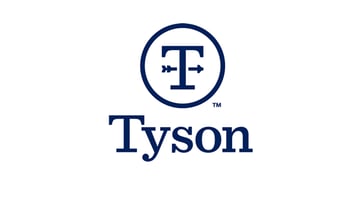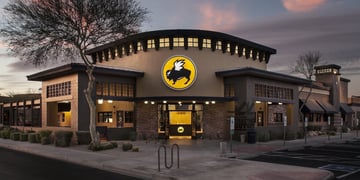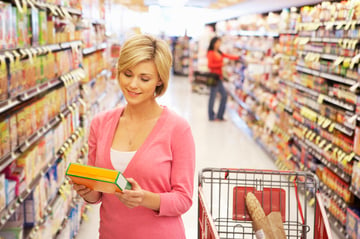If you’re a part of the food supply chain, it’s not a matter of if your company will be affected by a recall, it’s simply a matter of when.
FoodLogiQ, the leading SaaS provider of food safety compliance, traceability, and supply chain transparency software solutions, shared thoughts from corporate leadership today in the wake of the ongoing E. coli outbreak linked to romaine lettuce. The affected produce has sickened 172 people in 32 states and led to the death of one person in California, according to a May 16, 2018 update from the U.S. Centers for Disease Control and Prevention (CDC). Six illnesses from this outbreak have also been reported in Canada.
Currently, the CDC still has not identified the contamination source or where all of the suspect lettuce was grown, although Yuma, Arizona is believed to be a potential source site. The Food and Drug Administration (FDA) has also stated it is not certain where in the supply chain the contamination occurred. The organization says the key issues delaying the investigation are inconsistent records, problems with traceability labeling, and incomplete shipping information.
In the meantime, consumers were advised earlier this month to beware of purchasing or eating romaine lettuce, including whole heads and hearts of romaine, chopped romaine, organic romaine, or salads and salad mixes containing romaine, if they do not know where it was grown. While anyone can develop E. coli infection from exposure to the pathogen, there are certain population demographics - pregnant women, people with weakened immune systems, young children and elderly adults - who are most susceptible to developing severe complications, such as kidney failure and even death, if they become ill.
FoodLogiQ Insight
“Unfortunately, recalls and withdrawals are a fact of life in the food industry, and they can happen for a variety of reasons,” says Dean Wiltse, FoodLogiQ CEO. ”Whether it’s a quality or packaging problem, or a food-safety issue, if you’re a part of the food supply chain, it’s not a matter of if your company will be affected by a recall; it’s simply a matter of when.”
Regardless of the cause, Wiltse says stats show consumers expect a recall to be executed within 24 to 48 hours once a company is aware of the situation. But in reality, it sometimes takes weeks to pull a product from store shelves or to remove it from dining establishments. This is frequently due to communication issues, since everyone along the supply chain - the grower, supplier, packing and distribution centers, corporate office, and the retailer or restaurant - all must be notified, and a recall plan must be set in motion.
Historically, that communication process has taken too much time. When notifications take place via email or by phone call, those people responsible for pulling product may not have the information they need or may have received mis-information. This can result in lag time, and potentially unsafe product can still get into the hands of consumers.
FoodLogiQ’s Solution: The Connect Platform
To address these and other food safety issues, FoodLogiQ created a software solution that allows food companies to efficiently manage their suppliers, capture all the data needed for a transparent and FSMA-compliant supply chain, and stitch together critical tracking events to achieve real farm-to-fork traceability to quickly identify and address food safety issues.
According to Lucelena Angarita, Director of Supply Chain Traceability for Independent Purchasing Cooperative, Inc., the purchasing cooperative for Subway® franchisees, FoodLogiQ’s Connect platform provides IPC with useful shipment information that, in the event of a quality issue, provides the data to make real-time business decisions that protect the consumer and the Subway® brand. This is only possible if all supply chain partners collaborate to report their critical tracking events in their traceability system.
“We know that being proactive and prepared can make all the difference in successfully managing a quality incident,” says Angarita. “That’s why we partnered with FoodLogiQ in 2015, launching the Subway®-IPC/FoodLogiQ Traceability Program. Using FoodLogiQ Connect’s Track + Trace together with GS1 US Foodservice Standards, our supply chain partners can manage and track their shipments from the manufacturing plants all the way to the restaurant. That supply chain visibility mitigates risk, which is extremely valuable when consumer safety is at stake.”
“Currently, 99% of the produce sold by volume to Subway® has a GS1-128 barcode, which is the industry-recognized standard for traceability by product and location and the foundation of FoodLogiQ’s platform. Now our distributor partners are starting to scan the barcodes as they deliver each case to our restaurants, helping us reach our full supply chain traceability goals,” says Angarita.
“We’re proud to work with organizations like IPC/Subway® who are committed to consumer transparency and want to provide their customers with safe, high-quality food,” says Wiltse. “In this complex global supply chain, that’s what they demand and deserve.”
To learn more about how our cloud-based solutions help customers with traceability, food safety and supply chain transparency, request a demo.
Other posts you might be interested in
View All Posts
Quality Management
5 min read
| August 23, 2018
Tyson Foods Selects FoodLogiQ to Connect Supply Chain
Read More
Food Industry
5 min read
| May 14, 2018
Supply Chain Visibility a Key Challenge Throughout Food Industry
Read More
Food Industry
5 min read
| July 27, 2018

